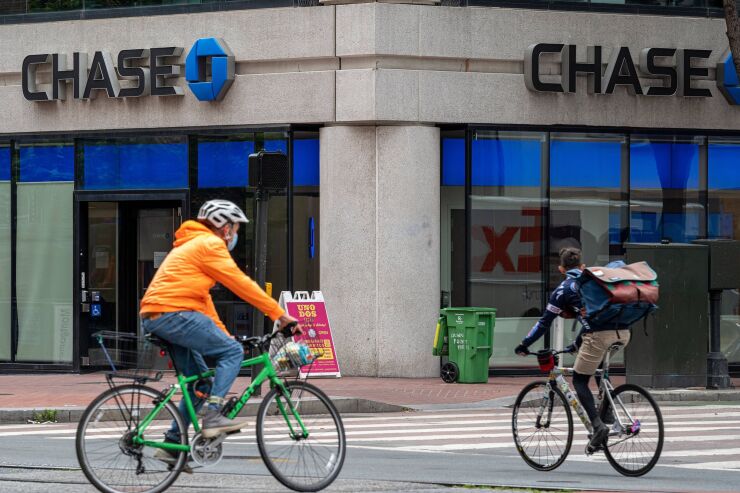JPMorgan Chase serves more than 4 million small businesses and in 2020 processed more than 27 billion transactions with a value of $1.4 trillion — but these days, that's simply not enough.
When the actual payment is commoditized, merchants care less about how big their provider is and more about what it can do. By combining Chase Merchant Services with
"The most important thing for small to medium-sized businesses isn't money, it's time. They don't have time to manage finance and their business," said Brad Brodigan, a former PayPal executive who earlier this year joined the bank as managing director of Global SMB for Chase Merchant Services and CEO of WePay.
WePay's roots are in providing payment technology for small businesses and web marketplaces that sell on behalf of micromerchants. As part of Chase, WePay has served a function

Chase Payment Solutions is focused initially on determining what types of payment needs a small business has. From there, Chase will offer other banking services as well as ancillary business functions such as managing inventory, training staff, regulatory compliance and applying for government programs. The $3.7 trillion-asset bank also hopes to more easily link business and consumer banking through the new unit.
"The line between business and personal lives for small- business owners is blurry at best," Brodigan said.
Chase Payment Solutions will also offer a new service, called QuickAccept, that allows business owners to accept card payments and get same-day funds availability without setting up a separate merchant account.
Small businesses faced a hit to their revenue from the pandemic and now face the challenge of recovering from a weakened economic position. According to the
The stress from the pandemic created an opportunity for fintechs to serve immediate needs such as contactless payment acceptance and e-commerce.
During American Banker's recent
"I'm looking at solving the problem from the other side now, from the bank perspective," said Brodigan, who in addition to PayPal has also served as chief commercial officer at BlueVine, a Silicon Valley-based online financial services company that targets small business. Brodigan was also president and chief operating officer at Dosh, an Austin, Texas-based digital payment company, and president of merchant services at Deem, a travel payment technology firm.
Brodigan said that in the fintech world he sold speed and ease of access. In the banking world, JPMorgan Chase has a product range that includes consumer and business financial services that allows Chase to scale as the small-business owner's needs change.
Digital payment companies like Square, Stripe and PayPal are increasingly using their payment offerings as a gateway to broader financial services.
Square and PayPal offer merchant credit based on future payment flows, and Stripe offers a range of security and merchant services on top of its payment rail.
The use of payments to inform loan terms and as a means of repayment has given fintechs access to an alternative data stream that can contribute to other financial services.
"Fintechs often have more insight than banks have into the condition of small businesses," said Ian Benton, a senior analyst at Javelin Strategy & Research. "That's why the finitechs have have made gains."
Banks can better compete with fintechs by offering adjacent merchant services and consulting on government programs, Benton said. "Banks need to expand what is in their purview. It's not just a place to hold cash and make transactions."





